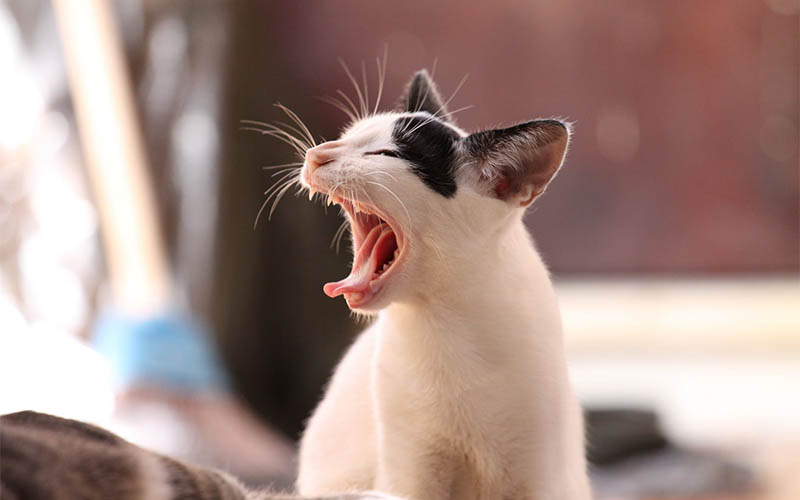Unfortunately, fees are a very real part of being a pet parent. Although food, toys, and pet-friendly furniture are unavoidable expenses, pet owners might be surprised to learn that the most costly expense can be avoided. That’s right, you can avoid most of your veterinary fees with help from pet insurance.
To hedge against the uncertainty of vet fees, pet parents can invest in pet insurance. Pet insurance is similar to human medical insurance, but with a few added bonuses: it’s often much cheaper, typically network-free, and preventative care is often covered.
We researched the most expensive fees associated with common veterinary care and cross-referenced our partners’ policies to find ways to save you money on pet ownership. Read below to learn about the three biggest medical expenses your pet may incur and the easy ways to avoid these budget breakers.
Emergency Care ($1,500+)
No matter how careful you are when looking after your dog or cat, the unfortunate reality is that accidents happen. When something does go wrong, the associated fees can unbalance even the most carefully-balanced pet budget.
Unlike a planned visit to a veterinarian, emergency clinics specialize in providing life-saving, fast-paced care on a 24/7 schedule. Because of their extended hours and intense level of care, emergency clinics are infamously expensive.
You might see these common services itemized on an emergency vet bill:
-
- General consultation/exam: $100–$150
- General bloodwork: $80–200
- X-rays: $150–$250
- Ultrasound: $300–$600
- 1-2 day hospitalization: $600–$1,700
- 3-5 day hospitalization: $1,500–$3,500
- Wound treatment and repair: $800–$1,500
- Emergency surgery: $800–$2,500
Why It’s So Important:
Unlike the other examples on our list, the importance of emergency veterinary services is crystal clear: without proper care, animals in emergency scenarios could suffer lifelong impairments or even death.
What you Can Do About It:
Pet parents should never have to choose between a life-saving medical intervention and protecting their money. Long before a pet’s injury or illness becomes a life or death scenario, consider getting pet insurance.
Dental Cleaning ($200–$500)
One of the most common forms of pet care is also the most expensive: dental work.

Due to the difficulty associated with deep-cleaning an unwilling animal’s mouth, a routine dental bill can range anywhere from $200–$500. If you happen to be the loving owner of a small dog breed (e.g. Dachshund, Yorkie, Bulldog), you can expect to double that expense bill, as littler pups require dental checkups every 6-months due to their oral sensitives.
Why It’s So Important:
You might be thinking: at a price point that high, I’ll just brush my pet’s teeth on my own. Unfortunately, you should leave the DIY for something less serious: professional dental cleaning for dogs and cats is extremely difficult to perform properly. Only professionals have the tools, skills, and knowledge to properly clean an animal’s mouth, prevent periodontal (i.e. gum) diseases, and treat existing issues.
An animal’s dental health directly affects the rest of their body. Teeth that go without regular cleanings develop plaque, which over time becomes tartar. Tartar can pass into a pet’s bloodstream, affecting and potentially blocking major organs such as the heart, lungs, or kidneys.
Even without considering holistic health, your dog or cat’s dental health is vital in and of itself. Infected teeth or gums can lead to intense pain, loss of teeth, or even irreversible periodontal disease.
What You Can Do About It:
Pet insurance companies typically offer preventative care plans that help pet owners pay for routine care. Instead of having to suffer through a ~$500 dental bill each year, you can pay a small monthly premium and know your pet’s future bills will be covered.
See our favorite preventative pet insurance plans, here.
Annual Checkup ($100–$300)
Your pet’s annual checkup is a hefty recurring expense, but there’s a good reason for the price point.
When your dog or cat goes in for a full physical, your vet performs multiple types of preventative testing. Within an hour, your vet will check your pet’s coat health, physical responses, eye health, mental cognition, blood count, urine quality, and sometimes run a full biochemistry profile, among other tests.
Why It’s So Important:
The annual checkup is the pinnacle of preventative veterinary medicine. If your vet discovers that something isn’t quite right with your dog or cat, they can recommend treatment immediately. This is what makes preventative medicine so valuable: it’s both safer for your pet and cheaper on your wallet to catch a sickness or injury early.
What You Can Do About It:
Just like dental checkups, your pet’s annual checkup can be covered by a preventative health insurance plan. Click here to read in-depth reviews of our favorite pet insurance providers.
There’s a Cheaper Way to Pay Veterinary Bills

Whether routine preventative care or life-saving emergency services, your pet’s health should be your only concern: never your wallet. To make this peace of mind reality, sign up for a pet insurance plan today. Our providers provide free quotes in minutes!

